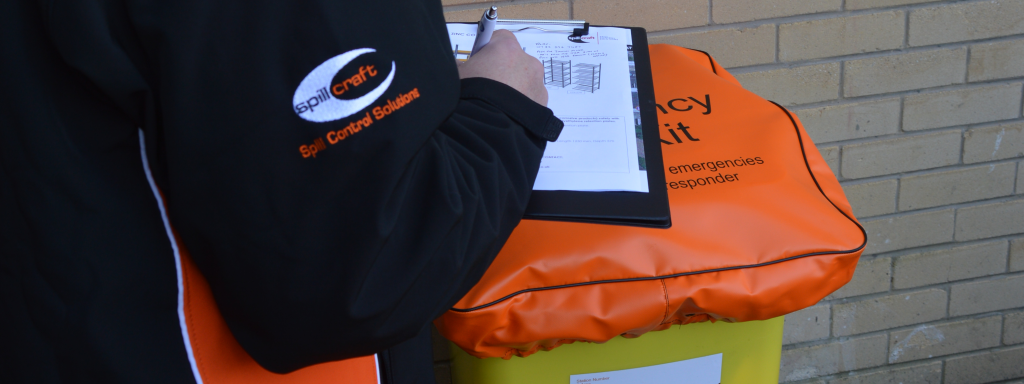We use cookies to make your experience better. To comply with the new e-Privacy directive, we need to ask for your consent to set the cookies. Learn more.
Compliance: spend a little to save a business

It’s essential to control costs in a business, but there are times when too stringent an approach is enormously risky. It can leave a business open to unnecessary risks, and potentially on the wrong side of the law, with reputations and finances in ruins. Compliance cannot be ignored.
Compliance is a good example. It’s an area that’s often targeted for cost savings because, unfortunately, many procurement specialists cling to a belief that it’s optional, without having a full understanding of the impact it could have on the business.. With an ‘old-school’ mentality, they remember the days when there were fewer regulations and reporting requirements, which has led so some deeming it unnecessary.
While compliance is, without doubt, an overhead, let’s not forget that the regulations and audit procedures are there for sound reasons. They protect our health, safety and environments and exist for the greater good. How can a business hope to be successful in the long term without embracing the aims of regulation?
Compliance, therefore, cannot be ignored - even when budgets are under pressure.
Imagine a situation where lack of bunded storage leads to a water course being polluted. The costs of putting things right, fines, lost business and bad publicity will far outweigh the cost of increasing storage capacity upfront. It is a false economy.A burden or a benefit?
What’s more, although it’s easy to see compliance as a burden in these challenging times, demonstrating a positive attitude to it could offer a business advantage. Major buyers may make contracts conditional on adherence to certain standards. Accreditations, on which so much business depends, may make compliance a qualifying factor. And, surely, market and public perception are enhanced when an organisation can show that it is taking its social responsibilities seriously?Compliance, however, isn’t a one-off fit and forget. Demands are constantly evolving. As science and understanding advance, standards and legislation change. What’s more, businesses which trade globally may find themselves subject to varying regulations imposed by several jurisdictions.
Although the red tape may be seen to be multiplying, there are still steps that can be taken to control compliance costs - approaches that will deliver savings and ensure an organisation meets all its obligations. But the first step is to accept that compliance itself is non-negotiable. Once that mental shift has been made, it’s time to establish the most cost-effective methods of ensuring compliance.
Cutting the cost of compliance
Depending upon the organisation, its size or complexity, responsibility may rest with a dedicated compliance team or an individual responsible for health and safety. Either way, external support can be invaluable. Specialists can offer expertise, risk assessments, economies of scale in supplies or simplified processes. For example, our Managed Spill360 service offers a fully audited hazardous waste removal process as well as replenishment of spill products and reporting, which cuts the hassle and meets all regulations without adding to staff workloads.Remember things change and evolve, so it’s also important to plan. Any change in an operation, its products or its procedures could result in compliance issues. Furthermore, health and safety officers often struggle to remain up to date with regulations which are always changing. The key to ensuring costs don’t escalate is to be fully prepared for any changes at the outset. Again, this is an area where external expertise is ideal. If an organisation doesn’t know what it needs to do, it’s more than likely Spillcraft does and can offer a practical solution.
Although it may appear counter-intuitive, sometimes the way to save is to spend. Being prepared is always easier than reacting to a spill incident. Investing in a professional, well-stocked spill station and training could deliver real savings in staff time, reduce the risk of injuries and prevent the costs of a clean-up and remedial work should a spill occur.
To protect a business, its staff, reputation and the environment, spending on compliance is necessary, but costs can be reduced with good planning, expertise and very moderate levels of investment.
For more information on any of the products or services we provide please contact our team on 01606 352 679 or [email protected]
You May Also be Interested In:
-

Site Survey
We assess your site, equipment, and spill training procedures, highlighting any potential danger zones that are apparent on site.
Read More -

Spill Training
Spill training courses designed to ensure your team are fully compliant and confident to prevent and deal with any spill incident.
Read More -

Managed Spill Service
A complete solution that we manage on your behalf, providing appropriate spill products with a regular audit and replenishment service
Read More -

Spill Equipment
Wide range of equipment to help prevent or respond to spills safely. Including safe storage, trollies, spill kits, PPE and much more
Read More

